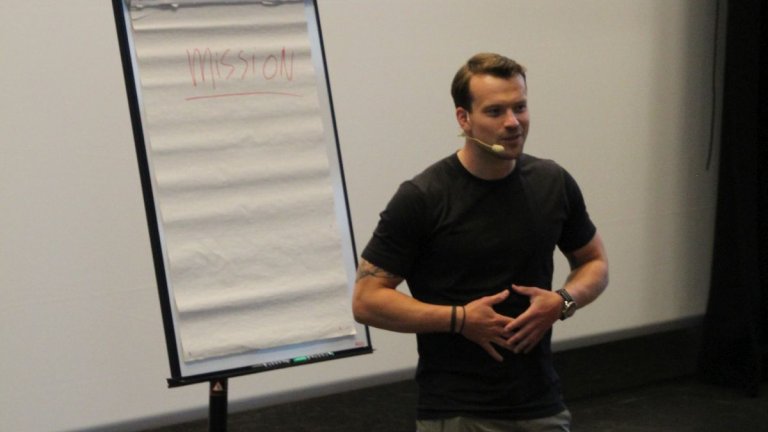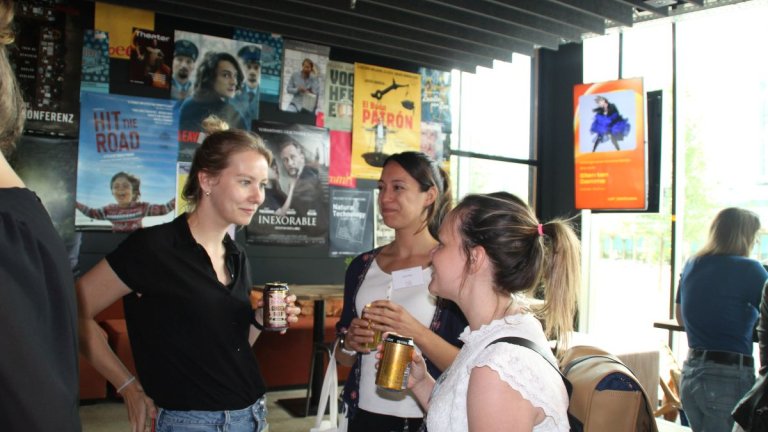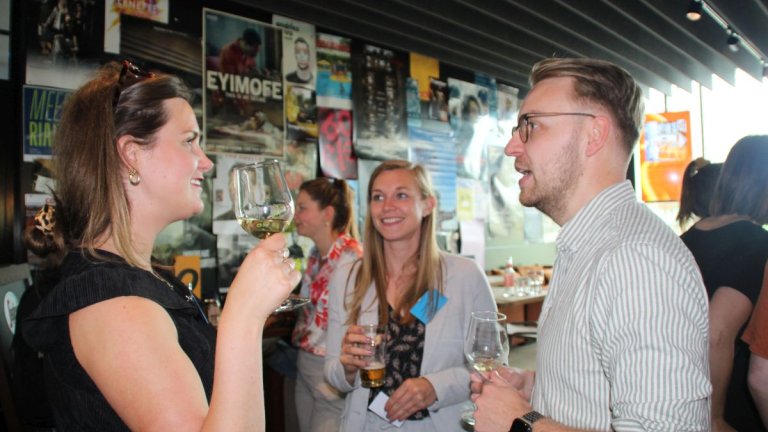Keynote Dai Carter - Importance of Mental Strength
In his keynote, Dai took all the attendees on a mission. Not just any mission, but on a special forces mission somewhere in the desert of Mali, carrying enough supplies (over 80 kg!) to spend a couple of days in hostile territory. Most importantly, in his talk he linked these challenging couple of days to his latest mission: sharing the importance of mental strength and improving the mental strength of people and organizations.
It was refreshing to learn from Dai's experiences, some parallels with research were easily made. Dai shared his personal model of mental strength with us and talked about the link between your purpose, your team and yourself. In an interactive session, he stressed the importance of keeping this triad in balance. Great questions were asked during the Q&A, including some discussing mental strength and how to implement this to improve public health. The hour flew by and there were still so many questions to ask!
All in all, it was great to hear how Dai uses his experiences from the Dutch Special Forces in his daily life, his relationship, fatherhood, in writing a book, but especially how he aims to improve the mental strength of the general population.
Thanks for a great talk Dai and good luck with your mission!

Lifestyle and Stress with Eva Cornet
During this workshop Eva shared a personal story of how severe stress has influenced her personally and her career. Having a job at the communication department and juggling that with her two young kids took its toll. Soon Eva was sick at home with a burnout.
Eva emphasized how important it is to recognize early stress symptoms. Furthermore she explained the importance of relaxation and the various forms of recovery. In groups we discussed our stress symptoms and brainstormed about preventive measures. We also brainstormed about forms of relaxation in order to recover after a stressful day. All participants wrote down one small measure that they could do the next day, which would decrease their stress levels a little.
Performing under Pressure by Thijs Wagenaar from YAAP sports and performing psychologists
During Thijs’ workshop the participants were reminded of the importance of “enjoyment” in work. Six sources for experiencing enjoyment in work were introduced. We learned that the relevance of a specific source depends on the person and the phase you’re in. The sources are: Development, Competence, Challenge, Relatedness, Movement/ or flow and Autonomy.
In a playful way, the participants were also confronted with the usefulness and feelings of enjoyment that goal setting can create in your work. So, don’t forget to set your result goals (long term end goals), performance goals (which skills do you need and want to develop?) and process goals (how you do your get to your end goal day by day: what are you going to do to get there tomorrow?).
Impact with science with Liesbeth Smit
In the interactive lecture Liesbeth addressed multiple aspects of science communication. How do you as a researcher make direct impact in healthcare, society or policy? Liesbeth showed us to have a different look towards our big goals and our direct goals as researchers: impact towards our biggest goal is made step by step, starting with your direct goals. Using examples of research in the media, Liesbeth showed the different forms of communication researchers can use to communicate their results to the media, public, target group, policy makers etc. Additionally we learned how design can influence the message you want to deliver to your audience.
As early and midcareer researchers this interactive lecture was an inspiring reminder our research does have impact, but we need to take it step by step using the right methods.
Boost your Pure profile challenge
Prior to Junified we asked all attendees to submit a researchers bio for their Pure Profile. The aim of this challenge was for all researchers to improve and fill out their Pure profile. Pure is the research information system managing your research output. It gives you and your research (output) exposure on the research portals. It is important your profile is complete and the affiliations to the research institute and research programs are in order.
Tips for writing your bio:
- Always write in first person narrative
- Be authentic and concise
- Use words that are relevant for your field
- Make separate small paragraphs
- Maximum of 150-200 words total
- Use US-English as language
We’ve received 18 bio’s, of which we chose a top 3 best bio’s. Have a look at the winner’s profiles:
Shuxin Zhang, Hanne Sponselee, Mirthe Muilwijk
Congrats!


